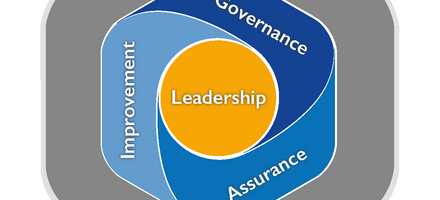Search
Search our content by date or relevance.

Leveraging Quality 4.0 to enhance customer experience
This, our first co-created report with US-based research and consulting firm Gartner, provides an in-depth analysis of the actions organisations need to take to prepare for the major customer shifts and increase in customer expectations.

How to write clear and effective requirements
Principal auditor and Security Assurance Manager Dale Rollinson outlines the need for writing clear and effective requirements.

Enhancing data security in the cloud
What is the impact of poor-quality data in the cloud and how can quality professionals mitigate this? Lead Auditor Prabin Litto takes a closer look.
40 hours (indicative)
FSSC 22000 Version 6 Lead Auditor (FSMS)
This course provides learners with the knowledge and skills required to perform first, second and third-party audits of food safety management systems against the FSSC 22000 scheme, in accordance with ISO 19011, ISO 22003-1 and ISO 17021-1, as applicable. The scheme includes ISO 22000, sector-specific requirements (ISO/TS 22002-x series) and FSSC 22000 additional requirements.

The Profession Map: what it means for auditors
Learn how The Profession Map applies to you and what it means for the future of the auditing profession.

What are we going to do with artificial intelligence?
Artificial intelligence is integral in many sectors, and quality management systems are no exception, says senior auditor Pedro Mejias.

Quality management systems offering sustainable solutions to reduce waste
Murugesh Siva examines how quality management systems can assist in the key areas of managing both industrial and metal waste.

Adding value to audits of management systems
Senior auditor Pedro Mejias outlines five ways in which the audit process can create value to the auditee.

Improving competitiveness with nine quality management tools
Quality management tools are essential for organisations to maintain a competitive edge in the market. These tools aid in identifying areas for improvement, reducing waste, and enhancing productivity, leading to cost savings, improved quality, increased customer satisfaction and loyalty. Quality professionals can improve their individual and team performance by utilising these tools, contributing to the overall success of the organisation.

AI automation driving digital acceleration in testing
Mav Turner, CTO of DevOps at Tricentis, takes a closer look at the use of AI in quality assurance to drive software development.